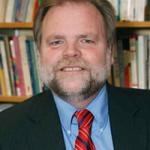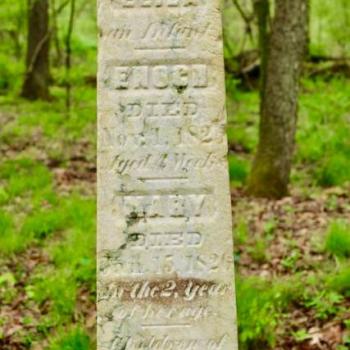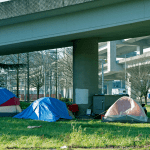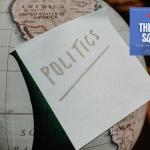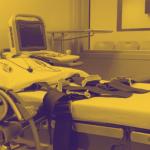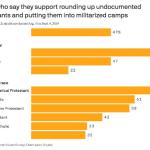The Adventurous Lectionary -The Fourth Sunday in Pentecost – July 7, 2019
2 Kings 5:1-14
Psalm 30
Galatians 6:7-16
Luke 10:1-11, 16-20
In today’s scriptures, we are confronted with the need for divine healing, physically, emotionally, spiritually, and theologically. Healing brings wholeness and connects us God’s energy of love, transforming our relationships and sense of connection with the wellsprings of divine providence.
The encounter of Elisha and Naaman is among my favorite healing stories. It could be titled, “the healing you need is right in front of you” or “no one is so great they can do without God’s grace.” Naaman is a great military leader, both respected and feared. Yet, a skin disease has rendered his life miserable. Disease and death are the great equalizers. While wealth will buy you the best hospital rooms and consults with the most talented physicians, the CEO and janitor are on equal footing when they are diagnosed with incurable “terminal” or chronic illnesses, or a companion is diagnosed with Alzheimer’s. Regardless of social status, we experience fear and frustration, not to mention daily pain of disease. We discover our impotence in relationship to a negative force greater than themselves. Without resources of our own, we are driven to seek the resources of a higher power.
Through political connections Naaman finds himself at Elisha’s house. He may have expected a greeting worthy of his social and political status, but all he receives is communication through Elisha’s emissaries, and the communication he receives sounds ridiculous. “Go bathe in the nearest river, the Jordan, and you will be well.” No doubt he expected a sophisticated treatment, talisman or ritual, or perhaps counsel to go to healing spa. All he receives is the simple message to jump in the river. Naaman is underwhelmed, to say the least, and initially can’t see any reason to follow the healer’s advice. In fact, Naaman is enraged. The prophet doesn’t greet him; doesn’t invoke the name of his deity; or pronounce his healing with pomp and circumstance.
Naaman is about to walk away from the whole thing, until one of his servants stops him in his tracks, “If the cure had been difficult, you would have done it. Why not take a chance on something simple and ready to hand?” Reluctantly, Naaman follows the prophet’s counsel, and his is immediately cured of leprosy. The simplest, most direct remedy is the most effective. (For more on healing, see Bruce Epperly, “Healing Worship: Purpose and Practice,” “God’s Touch: Faith, Wholeness, and the Healing Miracles of Jesus,” and “Healing Marks: Healing and Spirituality in Mark’s Gospel.”)
There are times we make the healing process more difficult than it is. The details cloud our thinking and perceived complexity paralyzes us when just one change can be catalytic. While illness arises from many factors, a commitment to taking the first steps toward wholeness may be the tipping point from death to life and debilitation to activity. This is true for physical well-being, and also for our spiritual and emotional well-being, and even more so for our communal and national well-being. Sometimes the answer is right in front of you, but you want a better one. There are simple practices that lead to healing of body, mind, and spirit – exercise, intellectual activity, diet, stress-reduction – not to mention social and political issues. While the preacher shouldn’t point his finger at their congregants – the finger will point back at her or him – some simple solutions are obvious – stop smoking, eat less red meat, take a walk, take a day off, and so forth.
This is even true in issues of national import. While not solving everything, for example the tragedies of Sandy Hook, Columbine, Orlando, and Parkland call us to clear and simple decisions. They call us to recognize that weapons idolatry cannot save us, but our idolatry can be transformed. Weapons of violence can be beaten into plowshares and certain weapons banned and globally confiscated. It is true that people kill people, but people can’t massacre people without lethal, multi-round weapons! The cure to future Parkland, Pulse and Sandy Hook tragedies includes curbing our national diet for automatic weapons and our idolatrous fixation on the Second Amendment, which trumps even our care for children and other innocents. (For more on faithful was to respond to gun violence, I refer to God Before Guns (godbeforeguns.org,)
Solving the crisis at the borderlands is complicated. But, the first healing step is to get beyond our prejudice, demonization, and sense of national exceptionalism, to see the face of Christ in an incarcerated child. At the very least, like a dietary change, this will tell us what we cannot do, what we must immediately address and eliminate, to take the first steps in restoring our nation’s moral integrity.
What first step can you personally take to claim God’s abundant life? What community action can make your town more just in its care for marginalized communities and reduce the gap between wealth and poverty? There are complex issues, and unintended consequences, but some things are obvious, simple, and effective on the path to Shalom and abundance. The least we can do is to make simple changes in lifestyle and political involvement as a prelude to more decisive action. We can say “no” to hate so that our public policy reflects our higher angels and not diabolical divisiveness.
In the Galatians passage, we discover that new creation is everything, and Paul connects experiencing new creation with opening to God’s grace through a life-affirming ethic. Share, reach out, honor community, and stay away from obvious compromising situations. Sometimes we are short on will-power and fall, but still grace abounds and the first step to welcoming grace already awakens us to the seeds of new creation.
The Galatians passage provokes similar questions: What new creation is on the horizon for you and your congregation? What new creation beckons our nation forward? What are we willing personally and corporately to do to enable the “new” to emerge? Where do you need healing to be in sync with God’s vision for your life and community?
In the Gospel reading, Jesus sends his followers out with a simple message: live in the now, don’t worry about success or failure, accept the generosity of others and let go of peoples’ negative responses. Let go of other peoples’ responses and remain faithful to God. The realm of God is won one moment at a time. When we live simply, focusing on what’s really important, new creation emerges, and Satan, the powers of darkness, is defeated. Healing comes when we seek to be simply faithful, remembering what is in our power, challenging our limitations, trusting God, and letting go of what is outside our control.
These passages are good news for preachers and congregations. They counsel us to be faithful to the Truth that presents itself to us, reclaim simplicity of spirit, put commitment ahead of success, and awaken to life transforming possibilities right where you are. An omnipresent God doesn’t need to be invoked; God’s creative energy is right here and now. Dust off your sandals, jump in the river, and be cleansed and renewed. You are wading in healing waters and walking on holy ground.
+++
Bruce Epperly is a Cape Cod pastor, professor, and author of 50 books, including “Spiritual Decluttering: 40 Days to Spiritual Transformation and Planetary Healing” and “Become Fire: Guideposts for Interspiritual Pilgrims.”



